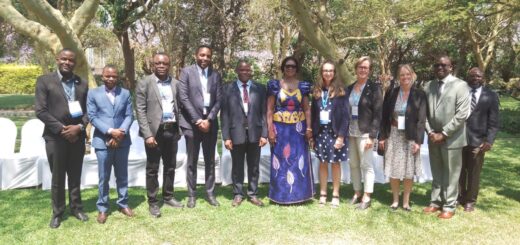Opposing West-monopolized democracy, int’l experts call for diversity of political opinion
Notice: Undefined index: catFilterList in /home/zambi/public_html/wp-content/plugins/wp-likes/api.php on line 243
Opposing West-monopolized democracy, int’l experts call for diversity of political opinion
Source: Xinhua
Editor: huaxia
2024-03-20 23:46:15
BEIJING, March 20 (Xinhua) — Western countries should inwardly reflect on their malfunctioning democracy instead of weaponizing democracy against others, experts said at an international forum on democracy here Wednesday.
Fretting about the monopolization of democratic values by the West, especially the United States, participants at the third International Forum on Democracy: The Shared Human Values called for cross-border dialogue and respect for political diversity.
AILING WESTERN DEMOCRACY
“The glorious season in which the democratic principle was ‘one head, one vote'” has gone, and the new principle is “one dollar, one vote,” said Massimo D’Alema, former prime minister of Italy.
He warned that modern media control enables overpowering money to manipulate political opinion.
D’Alema was one of many speakers who expressed concerns about money politics. Anthony Carty, an Irish professor of international law, told Xinhua that widespread “financial plutocrats” across Europe and North America have corrupted media and politics to serve their interests, leading to distrust between the public and the political sector.
Inequality poses another major threat to Western democracy. Citing a survey from the Organization for Economic Cooperation and Development, Georgios Katrougkalos, former Greek foreign minister, said that today majorities in all Western countries believe that their governments are not acting to promote the general interest but to “promote the interests of the wealthy and the powerful.”
However, despite the “ubiquitous, pathetic scenes” of illicit drug abuse, street vagabonds and looting of shops in U.S. cities, “the bipartisan legislators on the Capitol Hill seem to remain unperturbed,” said Ong Tee Keat, former deputy speaker of the lower house of the Malaysian Parliament.
D’Alema said Western countries should rebuild democracy with public policies that can relieve inequality and social injustice and limit the power of money.
For his part, former Peruvian Foreign Affairs Minister Cesar Landa underlined the risk of social networks to Western democracy, as social networking platforms can be used “to manipulate voters, sometimes in an emotional and irrational way.”
“Given the manipulation of personal data in the last U.S. election campaign, there is serious concern in the world that the elections could be won not by the candidates with the best policy proposals, but by those who use and control technology,” he said.
WEST-MONOPOLIZED DEMOCRACY
Despite their deteriorating systems, some countries continue to wave democracy as a flag against other countries, trying to build a “new Berlin Wall,” said D’Alema.
Electoral democracy is widely touted as a West creation and has ever since been made “the one-size-fits-all benchmark” for democratic rule worldwide, which is a “fallacy,” said Ong.
“The cohesive transplant of electoral democracy, either through military intervention or brutal regime change, as was initiated by Washington in the developing world, has only added more failed states and ensuing humanitarian disasters to the lists,” he said.
“Everywhere they’ve applied this system, it led to chaos,” British economist John Ross told Xinhua, noting that U.S. attempts to impose so-called democracy in Iraq and Libya have caused hundreds of thousands of deaths and a destabilized Middle East.
“You cannot impose a system from the outside for a very good reason because the main factor in any country is always domestic,” said Ross, also a former director of economic and business policy for the mayor of London.
The underlying intention of the United States, Ong said, is to use democracy as a weapon “against geopolitical challenges, or potential adversaries in the global power play.”
Western countries underwent a long “peculiar historical process” in democracy, which is precisely why the West should see that its model “cannot be exported and imposed in other parts of the world, as the experiences in Afghanistan or Iraq or in the Middle East have shown again in recent years,” said D’Alema.
HARMONIZING DIFFERENCES THROUGH DIALOGUE
With diverse levels of modernization and development, trajectories of nation-building, and history of nationhood across the developing world, the practice of democracy varies, which, nevertheless, has “consistently been the blind spot” of the developed West, said Ong.
For instance, China has “a better system for hearing the people and a better system for responding to them,” said Stephen Perry, president emeritus of Britain’s 48 Group Club.
“Chinese democracy and governance works. We should be studying in China, not trying to lecture China,” he said.
Participation and governance matter most regardless of form in the practice of democracy, said Ong.
Peter Mwangi Kagwanja, president of the Africa Policy Institute, said the international community is calling for a more multipolar world given the “glaring democracy deficit.”
For democratic global governance, an equal multipolar world requires “equal rights, equal opportunities and equal rules for every nation” and countries that “are not grouped according to their strength,” he said.
Essam Sharaf, former prime minister of Egypt, called for mutual learning, dialogue and inclusiveness among civilizations to tackle global challenges.
“We can break cultural barriers by harmonizing differences,” Sharaf said. “Different colors and shapes ended up with one beautiful painting.” ■

























